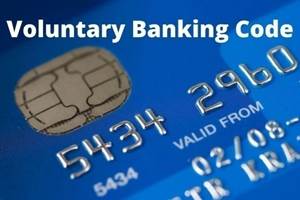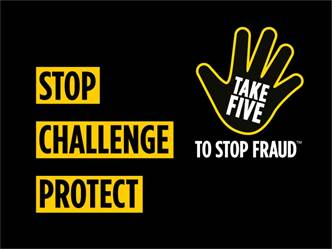This week the newspapers were full of stories surrounding what has been described as the largest fraud the UK has experienced. More than 100 people have been arrested in the UK’s biggest ever fraud operation, which brought down a website police describe as a “one-stop spoofing shop” used by scammers to steal tens of millions of pounds from Britons via fake bank phone calls.
It is estimated that more than 200,000 potential victims were targeted via the iSpoof fraud website, which was taken down this week by Scotland Yard’s cybercrime unit with the help of the authorities in the US and Ukraine.
It’s not only scams on the colossal size of the case above, but timeshare has its fair share also. Timeshare scams are rife at present. Rising maintenance fees coupled with availability problems are causing considerable dissent amongst owners with many looking for ways out, enter the scam companies. Most scam operators are working from Spain or in particular the Canary Islands with one thing in common; any money they require will be requested to be paid by bank transfer.
Credit card facilities, otherwise known as Merchant Facilities are extremely difficult to obtain nowadays with all the inherent investigations and financial adequacy requirements, scammers don’t have a chance. A card facility is required to accept payment by debit or credit card, so with no facility the only route left is for bank transfer,
Whilst remembering that it will prove difficult to get a refund if a bank transfer is used, it’s unlikely you’ll ever be able to get your money back if you’ve paid through a wire transfer service such as MoneyGram, PayPoint or Western Union.

Avoidance
Naturally we would always recommend carrying out your own investigations thoroughly before engaging the services of any company that contacts you. If you are considering using their services, ask for the content of any communication to be confirmed in writing and above all keep these communications. Only engage services if you are allowed to pay by credit card, be aware that even this route does not guarantee 100% protection against fraud, please see our article here.
Credit card protection can cover payments made up to 6 years before. Debit cards only benefit from the 120 days chargeback scheme, bank transfers…..who knows?

The voluntary banking code
According to the website This Is Money a banking code of conduct was launched on May 28, 2019. Under the then new rules, customers should be reimbursed, provided they have taken reasonable care to protect themselves. However, the new code is voluntary. And whilst most major banks have signed up to it, many smaller firms have not.
Both the bank that made the transfer and the bank that received the money must have joined for the new rules to apply. So far, this includes Barclays, the Co-operative, HSBC, Lloyds, Metro, Nationwide, RBS/NatWest, Santander and Starling Bank. TSB has its own fraud guarantee, which promises to refund all innocent victims.
But even those banks which have signed up to the code are still trying to wriggle out of repaying some defrauded customers. There is, however, some light at the end of the tunnel. A report in the Daily Mail states that laws are about to be enacted which may offer greater protection for transfer and debit card users.

Necessary Action
This Is Money goes on to offer the following advice: Often banks will say the customer did not take enough care or carry out sufficient checks before making a payment. But the new code states that customers only need to have a ‘reasonable basis’ for believing the payee is whom they expected. So explain clearly why you believed the person you paid was legitimate.
Did they know lots of personal information about you? Did they use a fake email address almost identical to a real one? The more detail you can provide to prove the scam was particularly sophisticated, the better chance you will have of getting your money back.
The new code also states that banks must provide customers with ‘effective warnings’ when they are making an unusual payment — such as when you’re paying someone new. If your bank failed to do this, make sure you include this information within your complaint. Ignore this warning at your peril.
You should also tell your bank if you are vulnerable, because under the new rules they are obliged to take extra measures to ensure you are protected. This could be because you are older, unwell; recently bereaved or perhaps you just have an unusually large amount of money in your account — following a house sale, for example.

Act quickly
It is vital you report any scam as soon as you realise it has happened to give your bank the best chance of recovering some or all of the stolen funds. You should also alert the bank that received the money, because it may be able to stop the cash leaving the account, very difficult if it’s abroad. If you don’t know where the money has gone, you can find out by entering the sort code on the Pay.UK website. This only works for UK banks. Foreign banks use the International Bank Identification Number (IBAN) system. IBAN numbers may be checked here
If you don’t think your bank acted quickly enough, say so. Under UK Finance’s Best Practice Standards, banks must contact the receiving bank as ‘soon as they have all the information necessary to do so’. You should receive a letter within three days to confirm the details of your report, and the bank then has 15 days to decide whether or not to refund you. Again this will be complicated if the receiving bank is not UK based.
If the bank refuses to co-operate, you can complain to the Financial Ombudsman Service. This is a free alternative to the courts; an adjudicator will assess your case. The FOS can order a bank to refund you if it finds in your favour.
You should also report the scam to Action Fraud, part of the City of London police. Your case will be analysed for any leads identified that could help with an investigation. This may not help you get your money back, but it could help stop others being scammed by the same fraudsters.

Finally
As we stated earlier, most fraudsters do not operate from the UK. Given that Brexit has changed the relationship between UK and European banks this may impede your efforts to recover funds if fraud is involved. Note the comment repeated from above:
“Both the bank that made the transfer and the bank that received the money must have joined for the new rules to apply”
This reinforces the fact that transfers to foreign banks may be difficult to obtain a refund from.
Below is a simple guide to avoid falling victim:
- Never pay money on the strength of a single cold call.
- Ask for as much evidence in writing as possible.
- Ethical above board companies will offer a 14 day “cooling off” period.
- Never pay by wire e.g. Western Union etc.
- Never be pressured into making a snap decision.
- Above all, do your homework and collect evidence, you may need it.
- Contact us, we will help you verify the company.
- If in doubt don’t do it!

For more information regarding this article or assistance in any other timeshare related issues please contact the TCA on 01908 881058 or email: info@TimeshareConsumerAssociation.org.uk
